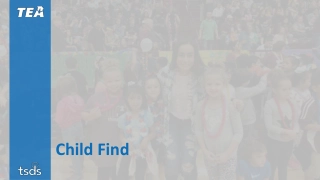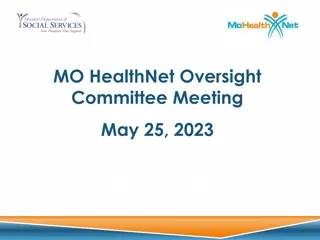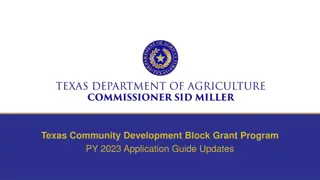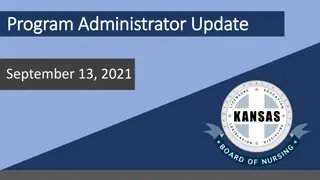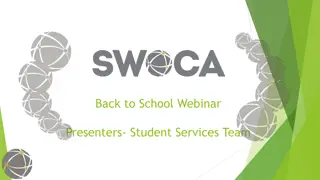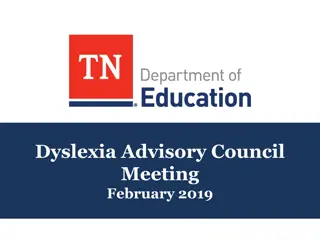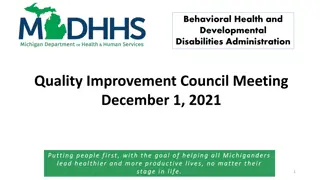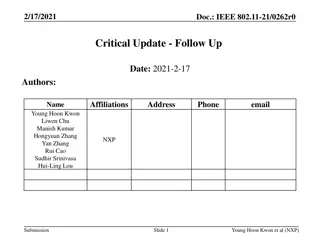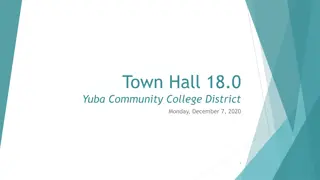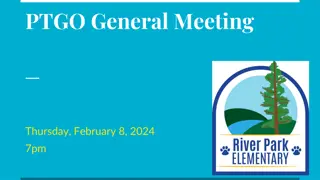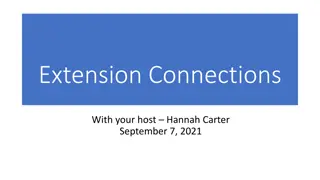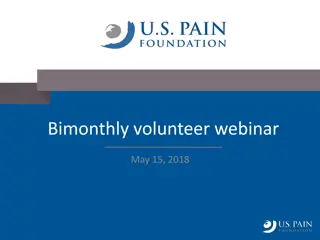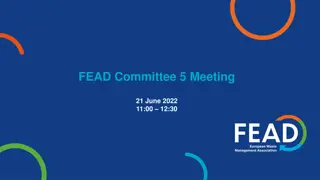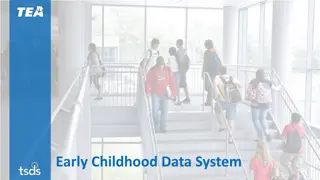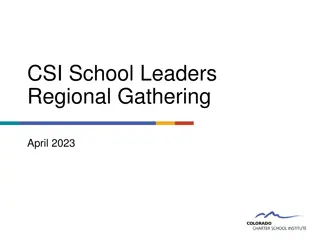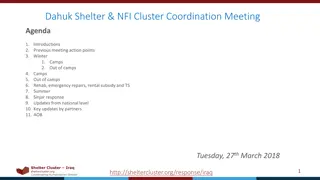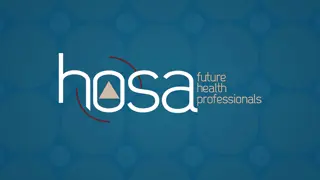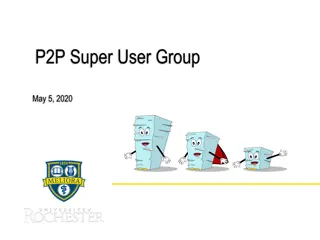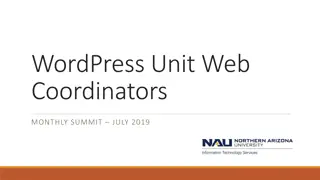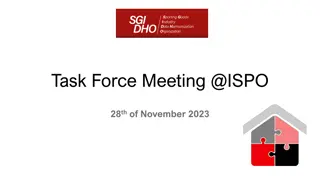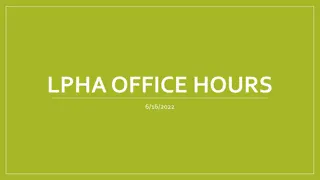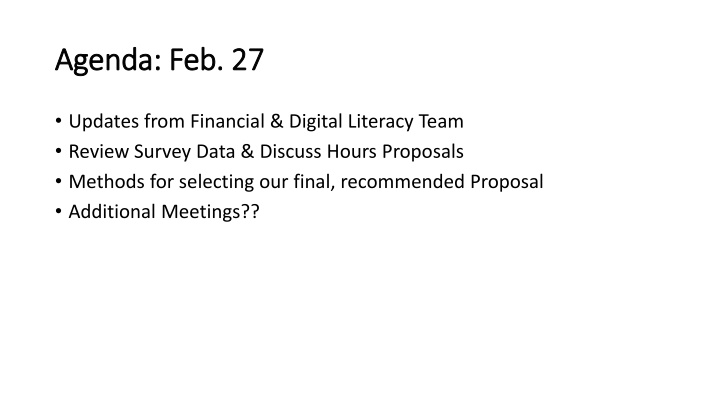
Enhancing Student Learning Through Financial and Digital Literacy Initiatives
Explore updates on financial and digital literacy, proposed changes in category names, and student learning outcomes for financial and digital literacy courses. Dive into committee guiding principles for a balanced approach to integrating these vital skills into the curriculum.
Download Presentation

Please find below an Image/Link to download the presentation.
The content on the website is provided AS IS for your information and personal use only. It may not be sold, licensed, or shared on other websites without obtaining consent from the author. If you encounter any issues during the download, it is possible that the publisher has removed the file from their server.
You are allowed to download the files provided on this website for personal or commercial use, subject to the condition that they are used lawfully. All files are the property of their respective owners.
The content on the website is provided AS IS for your information and personal use only. It may not be sold, licensed, or shared on other websites without obtaining consent from the author.
E N D
Presentation Transcript
Agenda: Feb. 27 Agenda: Feb. 27 Updates from Financial & Digital Literacy Team Review Survey Data & Discuss Hours Proposals Methods for selecting our final, recommended Proposal Additional Meetings??
Proposed Name Changes Current Gen Ed Category Name Proposed Gen Ed Category Name Mathematics Quantitative Reasoning and Analysis Humanities/Fine Arts Humanities and Cultural Expression History Historical Foundations Social Behavioral Sciences Social and Behavioral Sciences Communication Communication* Natural Sciences Scientific Reasoning Financial and Digital (Literacy or Foundations): TBD *the department of Communication is changing its name to Communication & Media, so no category is named the same as a department
Financial and Digital Literacy or Foundations??? TBD
Financial Literacy SLOs All courses in this category must meet both of the student learning outcomes listed below. Students will: Understand essential elements of personal finance. Assess personal financial wellness and implement strategies for improvement.
Digital Literacy SLOs All courses in this category must meet all 3 of the student learning outcomes listed below. Students will: Locate, critically evaluate, and demonstrate proficiency with various digital resources (including online information, apps, online learning, and other web- based tools) Demonstrate responsible use of software, databases, and online tools, including generative AI. Appraise ethical considerations related to data privacy, intellectual property, and the role of algorithms in mediating access to digital information.
Committee Guiding Principles Thoughtful (evidence-based) consideration of what should be required for all students in all majors versus what could/should be optional for individual programs and/or students to choose Honoring the findings/recommendations of the vision committee s year of effort and the voices (student and faculty) that contributed to those efforts (One of the most resounding recommendations being the desire for more flexibility/options) Being mindful of the TN Tech Strategic Plan and mission Being as equitable as possible when making room for the new digital/financial category (official name TBD) Respecting the expertise of program faculty to make decisions that are best for their majors
Methods for selecting our final recommendation Reasoning/Discussion Parliamentary Procedure (6 options) General Consent; Voice Vote; Show of Hands; Rising Vote; Roll Call; Ballot Vote Ranked choice voting (https://www.youtube.com/watch?v=gq7N2hmX9FI) Ask each subcommittee to rank their top two choices and tally up the score before eliminating the least popular options. A couple of rounds of voting (and eliminating the least favorite proposals) would ultimately leave two options on the table. This could be executed by voting via secret ballot.
Quantitative Reasoning & Analysis
Student Learning Outcomes All courses in this category must meet 3 of the 5 student learning outcomes listed below. Students will: Develop persistence in problem solving and skills in mathematics, computational reasoning, and/or statistical analysis. Use mathematical abstraction, computation, and/or logic to solve problems, check answers for reasonableness, and communicate reasoning and results. Interpret mathematical models or quantitative data from formulas, graphs, and/or tables and draw inferences from that information. Develop an informed skepticism about claims, an ability to judge the validity of arguments, and an understanding of the difference between correlation and causation. Understand statistical inference and demonstrate fundamental knowledge of methods for evaluating claims based on data.
Humanities & Cultural Expression
Student Learning Outcomes All courses in this category must meet 4 of the 6 student learning outcomes listed below. Students will: Interpret forms of cultural expression within multiple historical, intellectual, and cultural contexts. Learn how cultural expression contributes to the development of self and society. Explore global/cultural/and-or linguistic variety and the diverse perspectives it represents. Apply critical and analytical methodologies of the Humanities and/or Fine Arts to interpret texts, media, and cultural artifacts. Frame a comparative context through which they can critically assess the ideas, forces, and values that have created the modern world. Communicate in more than one language.
Student Learning Outcomes All courses in this category must meet 4 of the 5 student learning outcomes listed below. Students will: Analyze historical facts and interpretations. Analyze and compare political, geographic, economic, social, cultural, religious, and intellectual institutions, structures, and processes across a range of historical periods and cultures. Recognize and articulate the diversity of human experience across a range of historical periods and the complexities of a global culture and society. Draw on historical perspective to evaluate contemporary problems/issues. Analyze the contributions of past cultures/societies to the contemporary world.
Student Learning Outcomes All courses in this category must meet 4 of the 8 student learning outcomes listed below. Students will: Recognize, describe, and explain social institutions, structures, and processes and the complexities of a global culture and diverse society. Think critically about how individuals are influenced by political, geographic, economic, cultural, and family institutions in their own and other diverse cultures and explain how one's own belief system may differ from others. Explore the relationship between the individual and society as it affects the personal behavior, social development, and quality of life of the individual, the family and the community. Examine the impact of behavioral and social scientific research on major contemporary issues and their disciplines' effects on individuals and society. Using the most appropriate principles, methods, and technologies, perceptively and objectively gather, analyze, and present social and behavioral science research data, draw logical conclusions, and apply those conclusions to one's life and society. Take ethical stands based on appropriate research in the social and behavioral sciences. Analyze and communicate the values and processes that are used to formulate theories regarding the social context of individual human behavior in the social and behavioral sciences. Demonstrate an understanding of the importance of civil discourse and participating as well-informed citizens in a diverse and global society.
Student Learning Outcomes All courses in this category must meet all 4 of the student learning outcomes listed below. Students will: Construct focused, well-reasoned arguments that reflect an awareness of situations, perspectives, purposes, and audiences. Use traditional and digital strategies to demonstrate effective communication skills (written, oral, visual) in relation to specific rhetorical tasks. Demonstrate the understanding that writing and/or speaking processes include planning, organizing, composing, revising, editing, and sharing through traditional and digital communication (written, oral, visual). Synthesize theoretical and practical knowledge to think critically, solve problems, make distinctions, make decisions, and communicate effectively with audiences.
Student Learning Outcomes All courses in this category must meet all 5 of the student learning outcomes listed below. Students will: Formulate an evidence-based and testable scientific hypothesis about a natural phenomenon or system, conduct a controlled experimental investigation to address a scientific hypothesis, collect and analyze data, and interpret the results in context. Use established scientific ideas and language to construct a well-reasoned explanation for why a phenomenon occurred as it did, or to predict the outcome of a future investigation. Communicate scientific ideas in a variety of formats; depending on context these could be oral, written, diagrammatic, physical model, or algebraic. Analyze and discuss the impact of scientific discovery on human thought and behavior and understand that the scientific process is a human endeavor that has inherent uncertainty that can be quantified. Apply unifying principles of science and the scientific method to problems or issues of a scientific nature and contrast them to non-scientific explanations.

